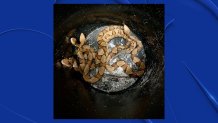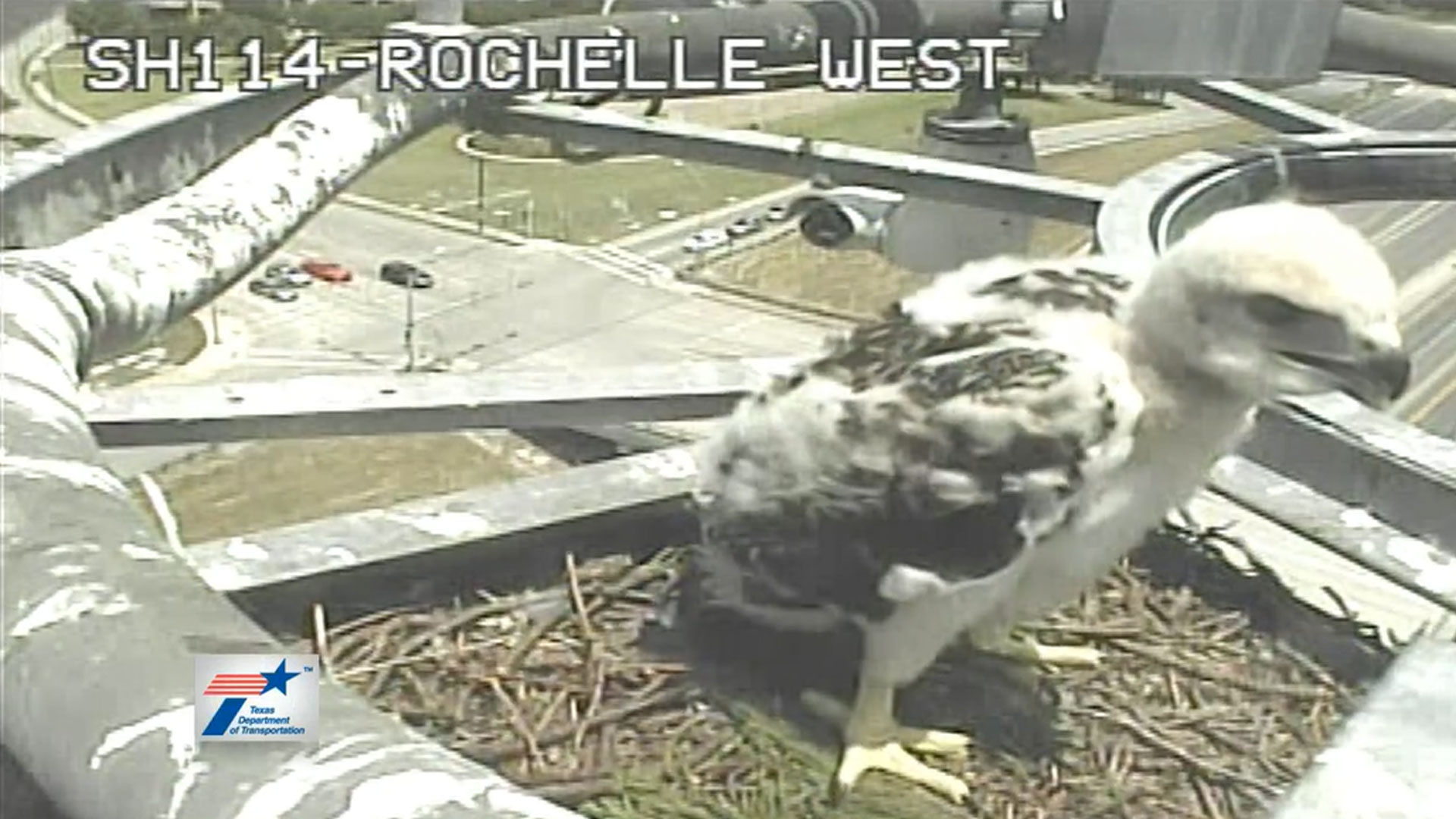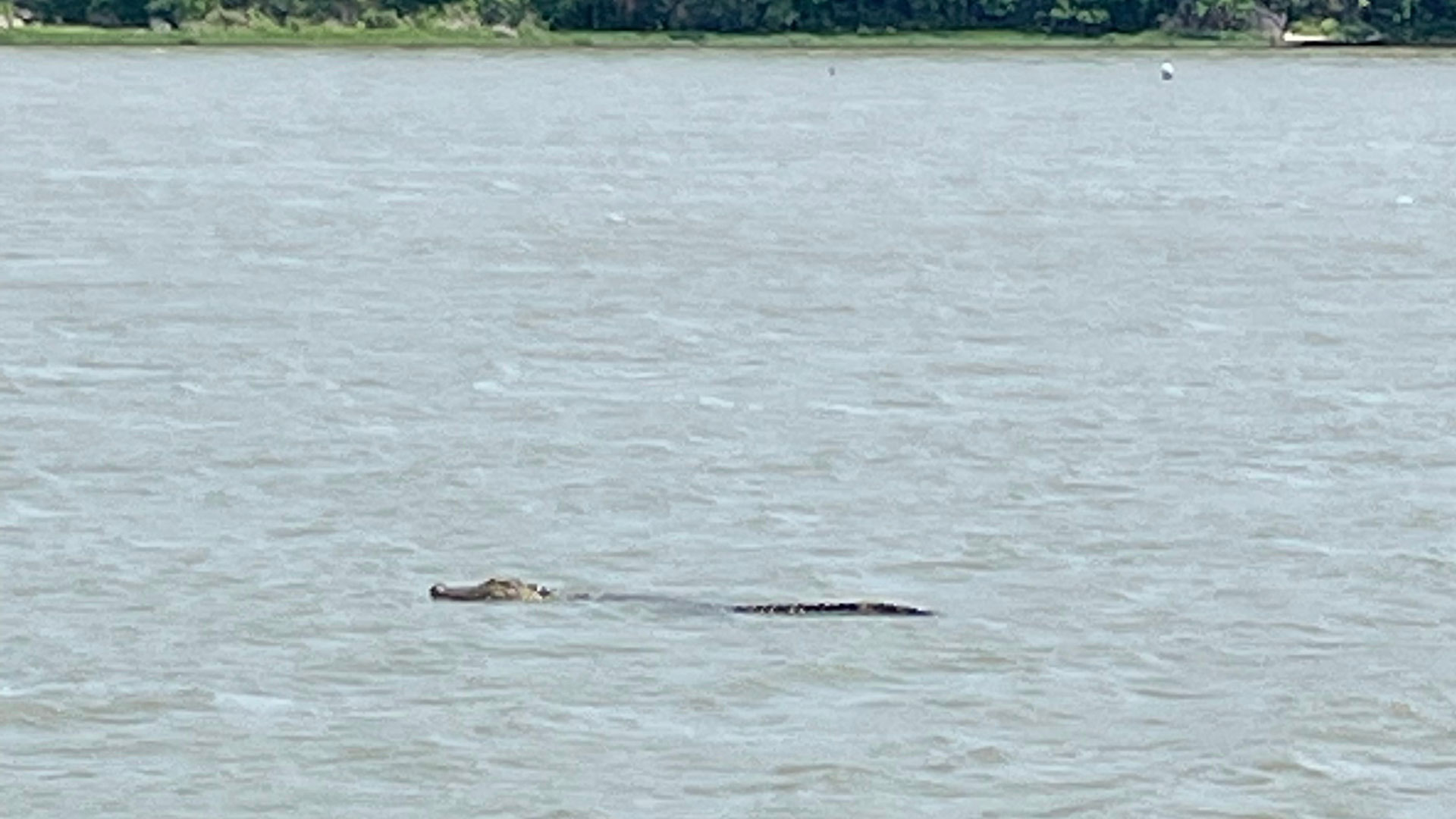As temperatures warm up and summer days approach, North Texans know snake season has arrived.
NBC 5 viewers have been sharing pictures and videos of snake sightings in recent weeks. And that's commonplace this time of year, as cold-blooded snakes normally hibernate during the winter months and reemerge from their dens in the spring, according to the Texas A&M Agrilife Extension.
Matt Morris with Balanced Canine in Midlothian wrote on Facebook about his neighbor's May 3 snake encounter.
"My neighbor was bitten on the hand by a copperhead this morning while reaching for tools in his toolbox," he wrote. "Luckily, it looks like a dry bite and he’s not having any symptoms."
Get DFW local news, weather forecasts and entertainment stories to your inbox. Sign up for NBC DFW newsletters.
"They’re pretty bad this year, so be careful out there!" he added.
PHOTOS: Watch Your Step! Snake Season in Full Swing
And Morris is certainly no stranger to snakes. NBC 5 spoke with him earlier this year about the copperheads he found during a sweep of his yard.

SOUTHLAKE POLICE REMOVE SNAKE FROM CLOSET
Southlake Police responded to a call from a homeowner who found a snake in her closet over the weekend.
Usha Venkataraman said her son made the discovery while getting ready to walk the dogs, who'd seemed uneasy and restless all night.
“He just put one foot inside. That’s it, and he saw something moving. So he threw on the light and saw it right there," said Venkataraman.
In a post on Facebook, shared below, Southlake Police said they gently removed the snake from the closet and relocated it to a nearby park.
Police in the home identified the snake as a cottonmouth but commenters believed the snake was a non-venomous water snake.
Either way, Venkataraman was pleased to have the officers' assistance in relocating the reptile, though she said she's been left tip-toeing around the house.
"It's not only the shoe closet. I'm going into the powder room, looking below the cabinet. I'm trying to be careful," she said.
SEVERAL SNAKES CALL TEXAS HOME
Several varieties of venomous snakes call North Texas home, including the copperhead, cottonmouth and the Western diamondback rattlesnake, among others.
Owner of Dallas-Fort Worth Wildlife Control Randall Kennedy said he's currently receiving 10 to 15 calls a day from people needing help with removal.
“Tis the season. It’s this time of year," said Kennedy. “We’ve ahd a little bit of rain. We’ve obviously had heat. And so they come out and start doing their thing."
Kennedy said as long as North Texas continues to develop and grow, the number of calls will only grow.
“They love to live off of us. A creature would love to live in that attic way more than he’d love to live in that tree," he said.
Snakes are most active at night and during early morning and late evening hours, the Texas A&M Agrilife Extension says.
One of the most common species of snakes isn't venomous at all. The Texas rat snake, according to an article published by the University of Texas at Arlington, can live in both rural and urban areas. Despite their larger size, Texas rat snakes pose no threat to humans.
A well-fed rat snake is exactly what Travis Hadden seems to have encountered during a run along White Rock Creek Trail.
"I was nearing the end of a 14-mile run on Sunday afternoon when I came across this huge snake!" he wrote in an email to iSee@NBCDFW.com.
"I almost just stepped on that thing," he says in the video. "Going to wait until that guy passes. Slow and steady."
Whether a harmless rat snake or a venomous copperhead, experts say it's best to give any snake its space and leave it alone.
And if you do capture videos or pictures of a snake from a safe distance, you can share it with NBC 5 online here or in an email to iSee@NBCDFW.com.
NORTH TEXAS WILDLIFE
WHAT TO DO WHEN A SNAKE IS NEAR
It is especially good practice to be careful as rain increases in the area and forces snakes to come out and seek shelter. Here's what to do just in case:
- Stay calm: Moving too fast can cause the reptile to react and bite your lower body
- Keep your distance, if you hear rattling move away from the area
- Keep your lawn cut low and remove brush or debris
WHAT TO DO IF YOU'RE BITTEN BY A SNAKE
If you've been bitten by a snake, here is what the CDC recommends.
- Seek medical attention as soon as possible (dial 911 or call local Emergency Medical Services [EMS]).
- Antivenom is the treatment for serious snake envenomation. The sooner antivenom can be started, the sooner irreversible damage from venom can be stopped.
- Driving oneself to the hospital is not advised because people with snakebites can become dizzy or pass out.
- Take a photograph of the snake from a safe distance if possible. Identifying the snake can help with the treatment of the snakebite.
- Keep calm.
- Inform your supervisor.
- Apply first aid while waiting for EMS staff to get you to the hospital.
- Lay or sit down with the bite in a neutral position of comfort.
- Remove rings and watches before swelling starts.
- Wash the bite with soap and water.
- Cover the bite with a clean, dry dressing.
- Mark the leading edge of tenderness/swelling on the skin and write the time alongside it.
Experts say if you are bitten by a snake you should always seek medical attention especially if a child, older adult, or anyone with a compromised immune system is bitten.
If you have been bitten by a snake, contact 911, go to an emergency room, or call the National Poison Control Center at 1-800-222-1222 for help.
WHAT NOT TO DO IF YOU'RE BITTEN BY A SNAKE
If you've been bitten by a snake, the CDC recommends you DO NOT do the following things.
Do NOT do any of the following:
- Do not pick up the snake or try to trap it. NEVER handle a venomous snake, not even a dead one or its decapitated head.
- Do not wait for symptoms to appear if bitten, get medical help right away.
- Do not apply a tourniquet.
- Do not slash the wound with a knife or cut it in any way.
- Do not try to suck out the venom.
- Do not apply ice or immerse the wound in water.
- Do not drink alcohol as a painkiller.
- Do not take pain relievers (such as aspirin, ibuprofen, naproxen).
- Do not apply electric shock or folk therapies.



